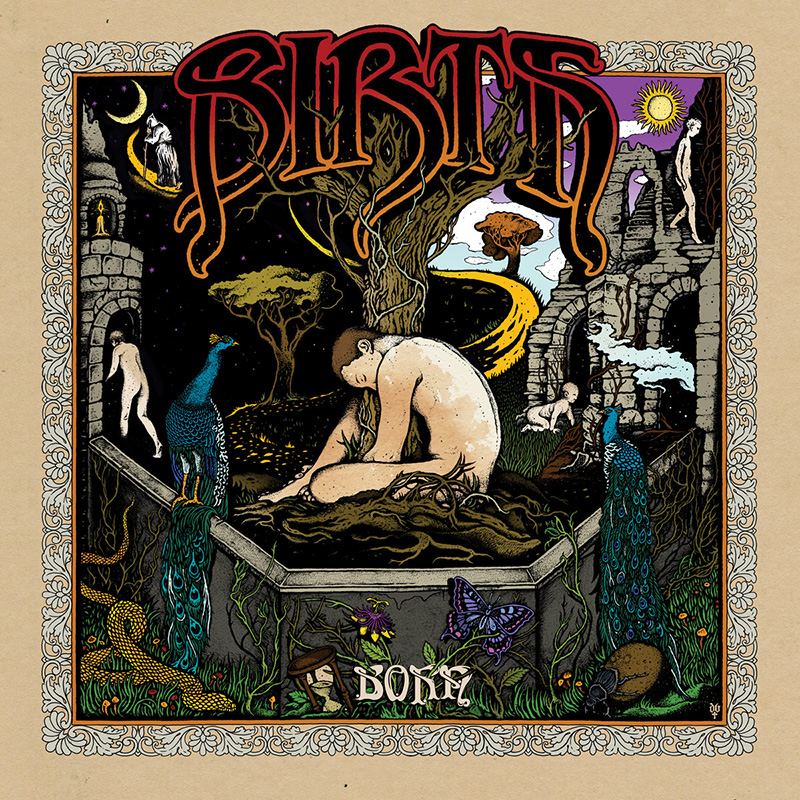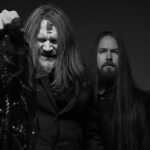In Mary Shelley’s iconic novel “Frankenstein,” the author mused, “Life and death appeared to me ideal bounds, which I should first break through, and pour a torrent of light into our dark world.” These words, penned over two centuries ago, resonate with the enduring human quest to transcend the mundane and inspire the spirit to soar beyond earthly limitations. It is precisely within this realm that we find Birth, a transcendental band hailing from San Diego, offering a vibrant and electrifying brand of progressive rock that defies conventional boundaries of time and space.
With their debut album “Born,” released under Bad Omen Records, Birth invites listeners on a mesmerizing journey reminiscent of a Castenadean realm where colors and sounds meld into kaleidoscopic dimensions. Yet, unlike other bands that may lean heavily on retro chic or classicism aligned with fashion, Birth boldly stakes its claim in a distinct artistic territory.

While the audial shapes within “Born” may evoke echoes of progressive rock’s past – including exploratory jazz-rock diversions, the rich melancholia of songwriting, and the timeless allure of Mellotron and Hammond textures – Birth distinguishes itself in both style and substance. Their music takes root in a world shaped by a global pandemic, one where the surrounding reality seems to hasten its own decline.
Birth emerged from Astra, known for their albums “The Weirding” (2009) and “The Black Chord” (2012), which redefined classic sonic textures with an intoxicating touch. Founding members Conor Riley and Brian Ellis embarked on a new voyage, initially collaborating with Psicomagia’s Trevor Mast and Paul Marrone. However, as creative sparks began to fly, Thomas DiBenedetto of Sacri Monte, Joy, and Monarch joined the ranks, shaping the band’s destiny.
The result is a debut album that blends a questing spirit with a dystopian perspective on the present. While the influence of legendary bands like King Crimson, Yes, and Van Der Graaf Generator is evident in the music, Birth’s mournful cadences, joyful solos, and kinetic freakouts draw from a wide spectrum of inspirations. From ’70s stalwarts like Aphrodite’s Child, Premiata Forneria Marconi, and Area to the primitive folk of Robbie Basho and the symphonic soundscapes of Osanna, their sonic tapestry is a rich one.
The lyrical themes in songs like “Descending Us” and “The Long Way Down” explore the deterioration of society, transformation, mortality, and other thought-provoking subjects. Conor Riley finds artistic solace in post-apocalyptic literature, and this is evident in Birth’s soundworld, where tumultuous darkness and soaring hope coexist. His background as a scientist informs his perspective, as he delves into dystopian science fiction as a means of addressing contemporary events.
However, amidst the cosmic and the apocalyptic, Birth doesn’t lose sight of the everyday human experience. Tracks like “For Yesterday” reflect on impermanence, while “Another Time” delves into the desire to disconnect from reality. Throughout their songs, a common thread weaves through, a quest to make sense of and shed light on life’s trials and tribulations.
With “Born,” Birth has worked alchemical forces to create an album that transcends time and space, a 42-minute journey where past, present, and future meld into one. It’s an album that remains tethered to earthly concerns even as its sonics reach for the stars. Birth invites listeners to embark on a musical voyage that defies boundaries, beckoning them to explore a realm where the spirit can truly break free.



